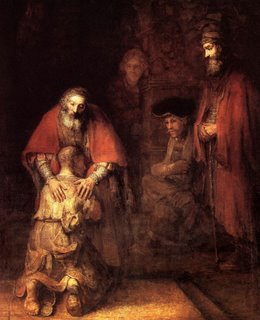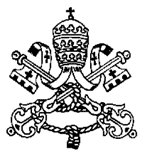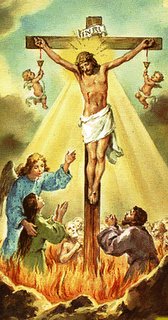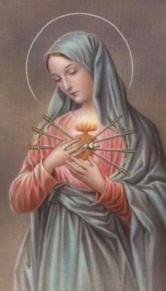As taken from the Catholic Encyclopedia
Purgatory (Lat., “purgare”, to make clean, to purify) in accordance with Catholic teaching in a place or condition of temporal punishment for those who, departing this life in God’s grace, are not entirely free from venial faults, or have not fully paid the satisfaction due to their transgressions. The faith of the Church concerning purgatory is clearly expressed in the Decree drawn up by the Council of Florence, and in the decree of the Council of Trent which defined: “Whereas the Catholic Church, instructed by the Holy Ghost, has from the Sacred Scriptures and the ancient tradition of the Fathers taught in Councils and very recently in this Ecumenical synod that there is a purgatory, and that the souls therein are helped by the suffrages of the faithful, but principally by the acceptable Sacrifice of the Altar; the Holy Synod enjoins on the Bishops that they diligently endeavor to have the sound doctrine of the Fathers in Councils regarding purgatory everywhere taught and preached, held and believed by the faithful”. Further than this the definitions of the Church do not go, but the tradition of the Fathers be consulted to explain the teachings of the councils, and to make clear the belief and the practices of the faithful.
TEMPORAL PUNISHMENT
That temporal punishment is due to sin, even after the sin itself has been pardoned by God, is clearly the teaching of Scripture. God indeed brought man out of his first disobedience and gave him power to govern all things (Wis. x, 2), but still condemned him “to eat his bread in the sweat of his brow” until he returned unto dust. God forgave the incredulity of Moses and Aaron, but in punishment kept them from the “land of promise” (Num. xx, 12). The Lord took away the sin of David, but the life of the child was forfeited because David had made God’s enemies blaspheme His Holy Name (II Kings, xii, 13, 14). In the New Testament as well as the Old, almsgiving and fasting, and in general penitential acts are the real fruits of repentance (Matt. iii, 8; Luke xvii, 3; iii, 3). The whole penitential system of the Church testifies that the voluntary assumption of penitential works has always been part of true repentance and the Council of Trent reminds the faithful that God does not always remit the whole punishment due to sin together with the guilt. God requires satisfaction, and will punish sin, and this doctrine involves as its necessary consequence a belief that the sinner failing to do penance in this life may be punished in another world, and so not be cast off eternally from God.
Venial Sins
All sins are not equal before God, nor dare anyone assert that the daily faults of human frailty will be punished with the same severity that is meted out to serious violation of God’s law. On the other hand, whosoever comes into God’s presence must be perfectly pure for in the strictest sense His “eyes are too pure to behold evil”. For unrepented venial faults for the payment of temporal punishment due to sin at the time of death. The Church has always taught the doctrine of Purgatory. So deep was this belief ingrained in our common humanity that it was accepted by the Jews, and in at least a shadowy way by the pagans, long before the coming of Christianity.
PROOFS
The Catholic doctrine of Purgatory supposes the fact that some die with smaller faults for which there was no true repentance, and also the fact that the temporal penalty due to sin is at times not wholly paid in this life. The proofs for the Catholic position, both in Scripture and in Tradition, are bound up also with the practice of praying for the dead. Why pray for the dead, if there be no belief in the power of prayer to afford solace to those who as yet are excluded from the sight of God? So true is this position that prayers for the dead and the existence of a place of purgation are mentioned in conjunction in the oldest passages of the Fathers, who allege reasons for succoring departed souls. Those who have opposed the doctrine of Purgatory have confessed that prayers for the dead would be an unanswerable argument if the modern doctrine of a “particular judgment” had been received in the early ages. But one has only to read the testimonies hereinafter alleged to feel sure that the Father speak, in the same breath, of oblations for the dead and a place of purgation; and one has only to consult the evidence found in the catacombs to feel equally sure that the Christian faith there expressed embraced clearly a belief in judgment immediately after death.
Some stress too has been laid upon the objection that the ancient Christians had no clear conception of Purgatory, and that they thought that the souls departed remained in uncertainty of salvation to the last day; and consequently they prayed that those who had gone before might in the final judgment escape even the everlasting torments of hell. The earliest Christian traditions are clear as to the particular judgment, and clearer still concerning a sharp distinction between Purgatory and hell.
Old Testament
The tradition of the Jews is put forth with precision and clearness in II Maccabees. Judas, the commander of the forces of Israel, “making a gathering . . . sent twelve thousand drachmas of silver to Jerusalem for sacrifice to be offered for the sins of the dead, thinking well and religiously concerning the resurrection (For if he had not hoped that they that were slain should rise again, it would have seemed superfluous and vain to pray for the dead). And because he considered that they who had fallen asleep with godliness, had great grace laid up for them. “It is therefore a holy and wholesome thought to pray for the dead, that they may be loosed from sins” (II Mach., xii, 43-46). At the time of the Maccabees the leaders of the people of God had no hesitation in asserting the efficacy of prayers offered for the dead, in order that those who had departed this life might feel pardon for their sins and the hope of eternal resurrection.
New Testament
There are several passages in the New Testament that point to a process of purification after death. Thus, Jesus Christ declares (Matthew 12:32): “And whosoever shall speak a word against the Son of man, it shall be forgiven him: but he that shall speak against the Holy Ghost, it shall not be forgiven him, neither in this world, nor in the world to come.” According to St. Isidore of Seville these words prove that in the next life “some sins will be forgiven and purged away by a certain purifying fire.” St. Augustine also argues “that some sinners are not forgiven either in this world or in the next would not be truly said unless there were other [sinners] who, though not forgiven in this world, are forgiven in the world to come”. The same interpretation is given by Gregory the Great and St. Bede and other eminent theological writers.
A further argument is supplied by St. Paul in I Cor., iii, 11-1,5: “For other foundation no man can lay, but that which is laid; which is Christ Jesus. Now if any man build upon this foundation, gold, silver, precious stones, wood, hay stubble: Every man’s work shall be manifest; for the day of the Lord shall declare it, because it shall be revealed in fire; and the fire shall try every man’s work, of what sort it is. If any man’s work abide, which he hath built thereupon, he shall receive a reward. If any man’s work burn, he shall suffer loss: but he himself shall be saved, yet so as by fire.” While this passage presents considerable difficulty, it is regarded by many of the Fathers and theologians as evidence for the existence of an intermediate state in which the lighter transgressions will be burnt away, and the soul thus purified will be saved.
Tradition
The doctrine that many who have died are still in a place of purification and that prayers avail to help the dead is part of the very earliest Christian tradition. Tertullian mentions prayers for the dead as an Apostolic ordinance, and in “De Monogamia” he advises a widow “to pray for the soul of her husband, begging repose for him and participation in the first resurrection”; he commands her also “to make oblations for him on the anniversary of his demise,” and charges her with infidelity if she neglect to succor his soul. This settled custom of the Church is clear from St. Cyprian, who forbade the customary prayers for one who had violated the ecclesiastical law. “Our predecessors prudently advised that no brother, departing this life, should nominate any churchman as his executor; and should he do it, that no oblation should be made for him, nor sacrifice offered for his repose.” Long before Cyprian, Clement of Alexandria had puzzled over the question of the state or condition of the man who, reconciled to God on his death-bed, had no time for the fulfillment of penance due his transgression. His answer is: “the believer through discipline divests himself of his passions and passes to the mansion which is better than the former one, passes to the greatest torment, taking with him the characteristic of repentance for the faults he may have committed after baptism. He is tortured then still more, not yet attaining what he sees others have acquired. The greatest torments are assigned to the believer, for God’s righteousness is good, and His goodness righteous, and though these punishments cease in the course of the expiation and purification of each one.”
In Origen the doctrine of Purgatory is very clear. If a man depart this life with lighter faults, he is condemned to fire which burns away the lighter materials, and prepares the soul for the kingdom of God, where nothing defiled may enter. “For if on the foundation of Christ you have built not only gold and silver and precious stones (I Cor. 3); but also wood and hay and stubble, what do you expect when the soul shall be separated from the body? Would you enter into heaven with your wood and hay and stubble and thus defile the kingdom of God; or on account of these hindrances would you remain without and receive no reward for your gold and silver and precious stones? Neither is this just. It remains then that you be committed to the fire which will burn the light materials; for our God to those who can comprehend heavenly things is called a cleansing fire. But this fire consumes not the creature, but what the creature has himself built, wood, and hay and stubble. It is manifest that the fire destroys the wood of our transgressions and then returns to us the reward of our great works.”
The Apostolic practice of praying for the dead which passed into the liturgy of the Church, is as clear in the Fourth Century as it is in the Twentieth. St. Cyril of Jerusalem describing the liturgy, writes: “Then we pray for the Holy Fathers and Bishops that are dead; and in short for all those who have departed this life in our communion; believing that the souls of those for whom prayers are offered receive very great relief, while this holy and tremendous victim lies upon the altar.” St. Gregory of Nyssa states that man’s weaknesses are purged in this life by prayer and wisdom, or are expiated in the next by a cleansing fire. “When he has quitted his body and the difference between virtue and vice is known he cannot approach God till the purging fire shall have cleansed the states with which his soul was infested. That same fire in others will cancel the corruption of matter, and the propensity to evil.” About the same time the Apostolic Constitution gives us the formularies used in succoring the dead. “Let us pray for our brethren who sleep in Christ, that God who in his love for men has received the soul of the departed one, may forgive him every fault, and in mercy and clemency receive him into the bosom of Abraham, with those who in this life have pleased God”. Nor can we pass over the use of the diptychs where the names of the dead were inscribed; and this remembrance by name in the Sacred Mysteries—(a practice that was from the Apostles) was considered by Chrysostom as the best way of relieving the dead.
The teaching of the Fathers, and the formularies used in the Liturgy of the Church, found expression in the early Christian monuments, particularly those contained in the catacombs. On the tombs of the faithful were inscribed words of hope, words of petition for peace and for rest; and as the anniversaries came round the faithful gathered at the graves of the departed to make intercession for those who have gone before. At the bottom this is nothing else than the faith expressed by the Council of Trent, and to this faith the inscriptions in the catacombs are surely witnesses.
In the Fourth Century in the West, Ambrose insists in his commentary on St. Paul (I Cor. iii) on the existence of Purgatory, and in his masterly funeral oration, thus prays for the soul of the departed emperor: “Give, O Lord, rest to Thy servant Theodosius, that rest Thou has prepared for Thy saints . . . I loved him, therefore will I follow him to the land of the living; I will not leave him till by my prayers and lamentations he shall be admitted unto the holy mount of the Lord, to which his deserts call him”. St. Augustine is clearer even than his master. He describes two conditions of men; “some there are who have departed this life, not so bad as to be deemed unworthy of mercy, nor so good as to be entitled to immediate happiness” etc., and in the resurrection he says there will be some who “have gone through these pains, to which the spirits of the dead are liable”. Thus at the close of the fourth century not only (1) were prayers for the dead found in all the Liturgies, but the Fathers asserted that such practice was from the Apostles themselves; (2) those who were helped by the prayers of the faithful and by the celebration of the Holy Mysteries were in a place of purgation; (3) from which when purified they “were admitted unto the Holy Mount of the Lord”. So clear is this patristic Tradition that those who do not believe in Purgatory have been unable to bring any serious difficulties from the writings of the Fathers. The passages cited to the contrary either do not touch the question at all, or are so lacking in clearness that they cannot offset the perfectly open expression of the doctrine as found in the very Fathers who are quoted as holding contrary opinions (Bellarmine).
DURATION AND NATURE
Duration
The very reasons assigned for the existence of Purgatory make for its passing character. We pray, we offer sacrifice for souls therein detained that “God in mercy may forgive every fault and receive them into the bosom of Abraham”; and Augustine declares that the punishment of Purgatory is temporary and will cease, at least with the Last Judgment. “But temporary punishments are suffered by some in this life only, by others after death, by others both now and then; but all of them before that last and strictest judgment.”
Nature of Punishment
It is clear from the Liturgies and the Fathers above cited that the souls for whose peace sacrifice was offered were shut out for the time being from the sight of God. They were “not so good as to be entitled to eternal happiness”. Still, for them “death is the termination not of nature but of sin” (Ambrose); and this inability to sin makes them secure of final happiness. This is the Catholic position proclaimed by Leo X in the Bull “Exurge Domine” which condemned the errors of Luther.
Are the souls detained in Purgatory conscious that their happiness is but deferred for a time, or may they still be in doubt concerning their ultimate salvation? The ancient Liturgies and the inscriptions of the catacombs speak of a “sleep of peace”, which would be impossible if there was any doubt of ultimate salvation. Some of the Doctors of the Middle Ages thought uncertainty of salvation one of the severe punishments of Purgatory. (Bellarmine); but this opinion finds no general credit among the theologians of the medieval period, nor is it possible in the light of the belief in the particular judgment. St. Bonaventure gives as the reason for this elimination of fear and of uncertainty the intimate conviction that they can no longer sin: “Fear is cast out because of the strengthening of the will by which the soul knows it can no longer sin”, and St. Thomas says: “unless they knew that they are to be delivered, they would not ask for prayers”.
Merit
In the Bull “Exurge Domine” Leo X condemns the proposition: “There is no proof from reason or Scripture that they [the souls in Purgatory] cannot merit or increase in charity”. For them “the night has come in which no man can labor”, and Christian tradition has always considered that only in this life can man work unto the profit of his own soul. The Doctors of the Middle Ages while agreeing that this life is the time for merit and increase of grace, still some with St. Thomas seemed to question whether or not there might be some non-essential reward which the souls in Purgatory might merit. Bellarmine believes that in this matter St. Thomas changed his opinion and refers to a statement of St. Thomas. Whatever may be the mind of the Angelic Doctor, theologians agree that no merit is possible in Purgatory, and if objection be urged that the souls there merit by their prayers, Bellarmine says that such prayers avail with God because of merit already acquired: “They avail only in virtue of past merits as those who are now saints intercede for us not by merit but by prayer”.
Purgatorial Fire
St. Augustine speaks of the pain which purgatorial fire causes as more severe than anything a man can suffer in this life. Gregory the Great speaks of those who after this life “will expiate their faults by purgatorial flames,” and he adds “that the pain be more intolerable than any one can suffer in this life”. Following in the footsteps of Gregory, St. Thomas teaches that beside the separation of the soul from the sight of God, there is the other punishment from fire. St. Bonaventure not only agrees with St. Thomas but adds that this punishment by fire is more severe than any punishment which comes to men in this life. How this fire affects the souls of the departed the Doctors do not know, and in such matters it is well to heed the warning of the Council of Trent when it commands the bishops “to exclude from their preaching difficult and subtle questions which tend not to edification, and from the discussion of which there is no increase either in piety or devotion”.
SUCCOURING THE DEAD
Scripture and the Fathers command prayers and oblations for the departed, and the Council of Trent in virtue of this tradition not only asserts the existence of Purgatory, but adds “that the souls therein detained are aided by the suffrages of the faithful and principally by the acceptable sacrifice of the altar.” That those on earth are still in communion with the souls in Purgatory is the earliest Christian teaching, and that the living aid the dead by their prayers and works of satisfaction is clear from the tradition above alleged. That the Holy Sacrifice was offered for the departed was received Catholic Tradition even in the days of Tertullian and Cyprian, and that the souls of the dead, were aided particularly “while the sacred victim lay upon the altar” is the expression of Cyril of Jerusalem quoted above. Augustine says that the “prayers and alms of the faithful, the Holy Sacrifice of the altar aid the faithful departed and move the Lord to deal with them in mercy and kindness, and he adds, “this is the practice of the universal Church handed down by the Fathers.” Whether our works of satisfaction performed on behalf of the dead avail purely out of God’s benevolence and mercy, or whether God obliges himself in justice to accept our vicarious atonement, is not a settled question. Suarez thinks that the acceptance is one of justice, and alleges the common practice of the Church which joins together the living and the dead without any discrimination.
INVOCATION OF SOULS
Many renowned theologians hold that the souls in Purgatory really pray for us, and that we may invoke their aid. The souls in Purgatory are holy, are dear to God, love us with a true love and are mindful of our wants; that they know in a general way our necessities and our dangers, and how great is our need of Divine help and divine grace”.
UTILITY OF PRAYER FOR THE DEPARTED
It is the traditional faith of Catholics that the souls in Purgatory are not separated from the Church, and that the love which is the bond of union between the Church’s members should embrace those who have departed this life in God’s grace. Hence, since our prayers and our sacrifices can help those who are still waiting in Purgatory, the saints have not hesitated to warn us that we have a real duty toward those who are still in purgatorial expiation. Holy Church, through the Congregation of Indulgences, 18 December 1885, has bestowed a special blessing on the so-called “heroic act” in virtue of which “a member of the Church militant offers to God for the souls in Purgatory all the satisfactory works which he will perform during his lifetime, and also all the suffrages which may accrue to him after his death” (Heroic Act, vol. VII, 292). The practice of devotion to the dead is also consoling to humanity and eminently worthy of a religion which seconds all the purest feelings of the human heart. “Sweet”, says Cardinal Wiseman, “is the consolation of the dying man, who, conscious of imperfection, believes that there are others to make intercession for him, when his own time for merit has expired; soothing to the afflicted survivors the thought that they possess powerful means of relieving their friend. In the first moments of grief, this sentiment will often overpower religious prejudice, cast down the unbeliever on his knees beside the remains of his friend and snatch from him an unconscious prayer for rest; it is an impulse of nature which for the moment, aided by the analogies of revealed truth, seizes at once upon this consoling belief. But it is only a fitting and melancholy light, while the Catholic feeling, cheering though with solemn dimness, resembles the unfailing lamp, which the piety of the ancients is said to have hung before the sepulchers of their dead.”

























